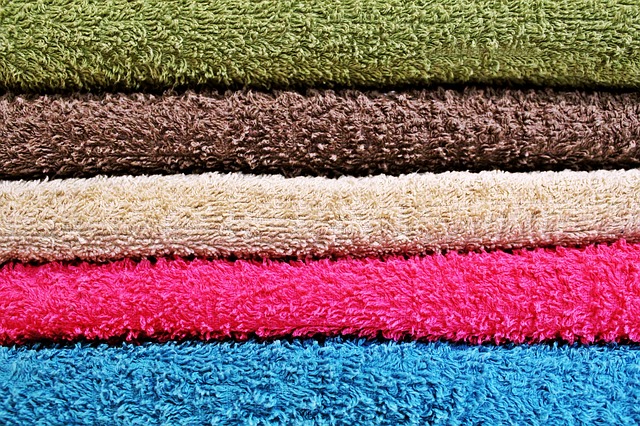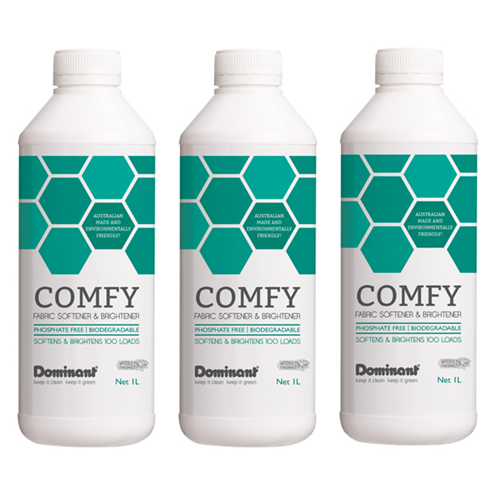To Use Fabric Softener or Not to Use Fabric Softener,
That is the Question!
There is something simultaneously luxurious and wonderfully basic about the feel of soft fabric against your skin, isn’t there? It’s one of life’s simple pleasures. In recent years though, fabric softeners have been given a bit of a bad rap. Whilst it is true that there are a few types of fabric that you should steer clear of with fabric softener (such as microfiber cleaning clothes, and fire retardant fabrics (e.g. pyjamas) if you choose a high quality fabric softener and adhere to the manufacturers usage instructions you can enjoy wonderfully soft clothes and linen without a worry. But, as with everything in life, fabric softeners are not all made equally. So choosing the right product is key to prolonging the life of your clothes and the comfort of your family.
Common Complaints About Fabric Softeners and
How Dominant Products Compare
Fabric softeners contain silicon which can compromise the immune system
The main ingredient in many commercially produced fabric softeners is a fibre-lubricating silicone based fluid such as siloxane and polydimethylsiloxane. Once this is transformed into synthetic compounds known as ‘silicones’ and introduced into the human body (via your skin) it can compromise the immune system, often with toxic effects.[1]
Dominant fabric softeners by comparison, are silicon-free, so they soften your clothes without compromising your health.
Fabric softeners can irritate sensitive skin
People with sensitive skin, such as babies, young children, older adults and those with skin issues such as eczema often find that the chemical and heavy fragrances in commercial fabric softeners irritate their skin. In contrast Dominant Fabric Softener & Brightener is mildly acidic, so it neautralises the pH level of fabrics reducing the risk of skin irritation which can be caused by alkaline residues. It is also low fragrance, giving clothing a fresh, delicate scent, rather than a heavy overpowering one.
Fabric softeners make your clothes waterproof and make towels lose their absorbency
This is a common reason given to halt use of fabric softener. Jolie Kerr, Adequate Man’s laundry expert and advice columnist recently wrote:
“Fabric softener is terrible, and I want everyone to stop using it…It leaves behind a coating that, over time, will render the fibers of your clothes more impenetrable to water and detergent. In the case of especially funky-smelling clothes, like gym gear, it will lock in that kind of crotch-y, sweaty smell. Towels are another category that don’t respond well to fabric softener; the coating I mentioned will make the towels less absorbent.”[1]
We want to set the record straight on this one. This could only happen with Dominant Fabric Softener & Brightener if you added way too much to your clothes. Remember our product is highly concentrated, meaning you don’t need to use much. This is why we recommend following dosage instructions. But rest assured, if accidental overuse does occur, it isn’t the end of the world, or your fabrics. Simply wash the effected clothing or towels as normal without fabric softener to remove the build-up.
Oh…and the prospect of ‘locking in that funky smell’ that Kerr refers to? Rest assured that Dominant Fabric Softener & Brightener contains sanitiser to eliminate bacteria not lock it in.
Fabric softeners can make your whites yellow
Many older fabric softeners were prone to giving whites a rather unpleasant yellow tinge. Today’s fabric softeners as a whole are less likely to cause this, however be sure to follow the dosage directions as overuse could lead to build up on your clothes.
Fabric softener clogs up your washing machine
Only through extreme overuse of Dominant fabric softeners would this happen. Machines can become clogged up with something called ‘biofilm.’ Biofilm can sometimes look like fabric softener however it is actually a build-up of bacteria and is more prevalent in machines where low temperature wash cycles are always used, combined with the use of liquid laundry products. You can prevent biofilm from developing in your machine by simply taking the following steps:
From time to time, use the hot wash cycle and if possible use Clinic Antibacterial Laundry Powder to remove any stubborn bacteria.
So, you needn’t forgo the pleasure of crawling into freshly made bed and feeling the super soft sheets against your skin, or snuggling up in a warm soft jumper on a cold winters day. The question isn’t whether or not to use fabric softener in your wash, it’s which fabric softener to use. And here is your answer…




Comment (0)